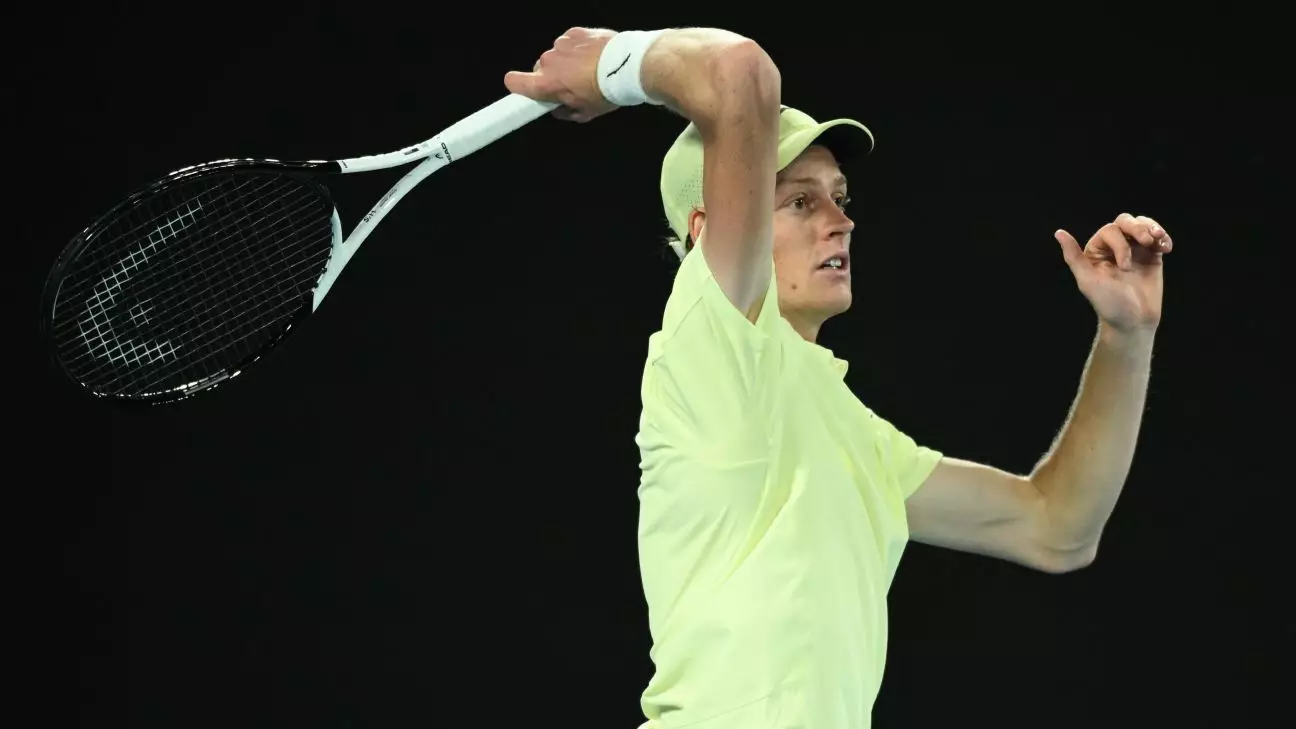Tennis, a sport once revered for its integrity and athletic excellence, has recently faced an upheaval surrounding doping allegations that have shaken its core. The case of young Italian star Jannik Sinner serves as a focal point for these issues, as his three-month ban due to a positive test for clostebol—an anabolic agent—has raised red flags regarding the efficacy and fairness of anti-doping measures. The controversy surrounding Sinner’s case, along with that of Polish player Iga Swiatek, highlights a problematic landscape where even unintentional infractions can lead to severe consequences, leaving players scrambling for guidance on how to remain compliant.
A Growing Demand for Transparency and Information
The landscape of professional sports is evolving and acquiring knowledge about anti-doping protocols is increasingly becoming essential for athletes. In the wake of Sinner and Swiatek’s suspensions, many players are now seeking information on how to avoid being ensnared by the doping system. The International Tennis Integrity Agency (ITIA) has noted a significant uptick in players reaching out for assistance, underscoring a collective concern that has permeated the sport. With the barriers that once existed in communication and transparency seemingly crumbling, players have come to rely on the ITIA for guidance. The organization has assured players that resources are available to check supplements and medications, reinforcing its commitment to maintaining a level playing field rather than acting as a trap to ensnare unsuspecting players.
The Reactions from the Tennis Community
The reactions to Sinner’s case have been mixed, revealing divisions within the tennis community itself. Some, like Novak Djokovic, have expressed frustration with the manner in which the case was handled, feeling that the situation raised more questions than it answered. Meanwhile, Serena Williams weighed in with pointed remarks, suggesting that had she experienced a similar fate, she would have faced not only a lengthy ban but also a potential stripping of her Grand Slam titles. Such sentiments reflect a broader concern among players about the inconsistency in how doping cases are managed, further muddling the waters and raising questions of fairness that lack easy answers.
Sinner’s Journey Back to the Court
While the doping allegations have engulfed Jannik Sinner, they have not derailed his career entirely. The talented athlete had notable successes even during this turbulent period, including winning the US Open and successfully defending his Australian Open title. As he prepares to make his return to competitive tennis in Rome, the narrative begins to shift. Despite his impressive track record, Sinner openly acknowledges the challenges he will face upon his return. The psychological weight of the controversy could impact his performance, leading to a need for a mental reset as he strives to regain his rhythm ahead of the French Open.
Support from Fellow Athletes
Even in these tumultuous times, Sinner has found advocates within the tennis community. Veteran Rafael Nadal has publicly stated that Sinner should now be given the space to concentrate solely on tennis, urging the tennis community to move forward rather than languish in past controversies. Nadal’s faith in Sinner’s character speaks volumes about the importance of trust and camaraderie among professional players, particularly when faced with challenges that threaten to overshadow their achievements. The camaraderie of athletes, especially in a sport deeply impacted by individual reputation, is crucial in fostering an environment where players can compete fairly and without discrimination based on scandals.
A Call for Comprehensive Reforms
As this saga unfolds, it is becoming increasingly apparent that the tennis world could benefit from a comprehensive review of its doping regulations. The disparities in how cases are handled and the scope of penalties issued can impact not only careers but also the integrity of the sport as a whole. If doping violations are to be taken seriously, the governing bodies must ensure that accountability and transparency go hand-in-hand and that every player feels equally protected from inadvertent infractions. Moving forward, it will be vital for the sport to create an environment where players are educated about potential pitfalls while enjoying a fair chance to demonstrate their talent without the shadow of suspicion. The road to reform will necessitate dialogue, cooperation, and a commitment to preserving the honor of the sport while supporting its athletes.

